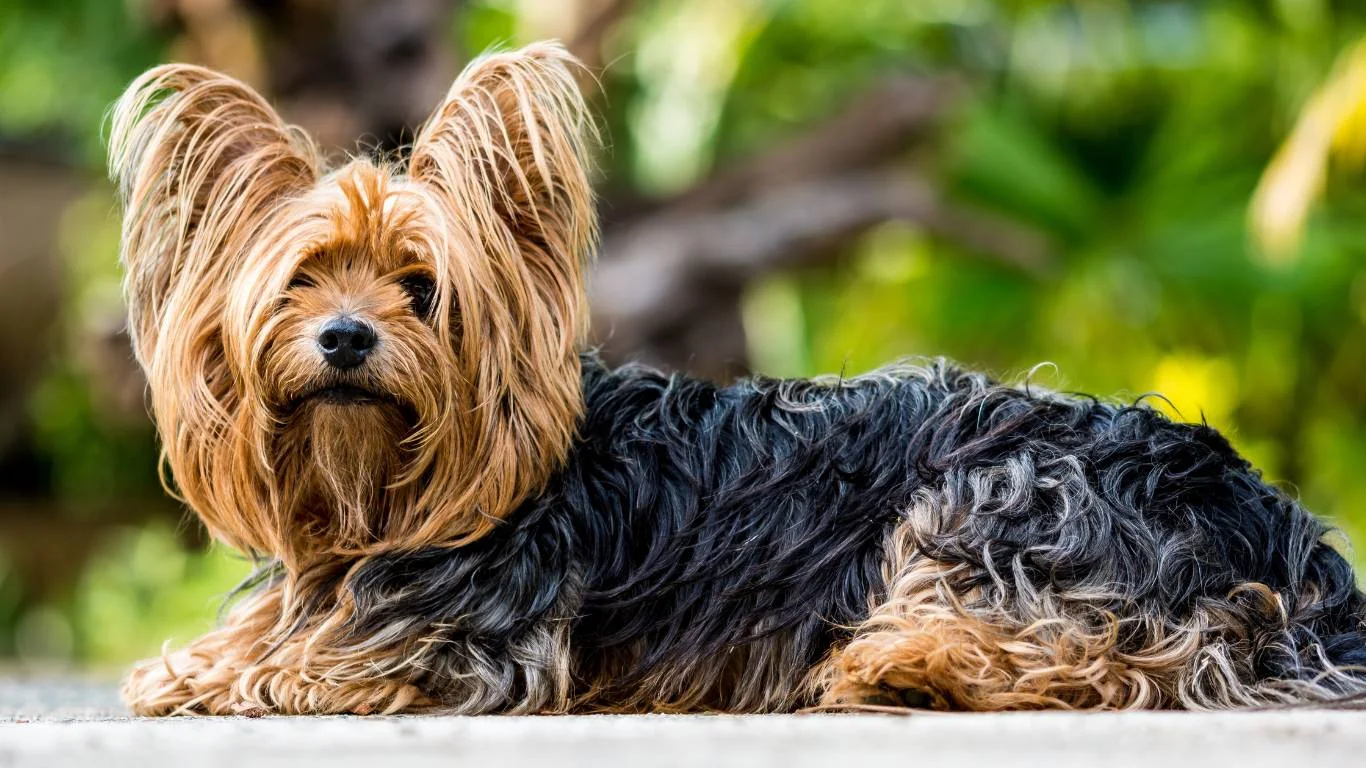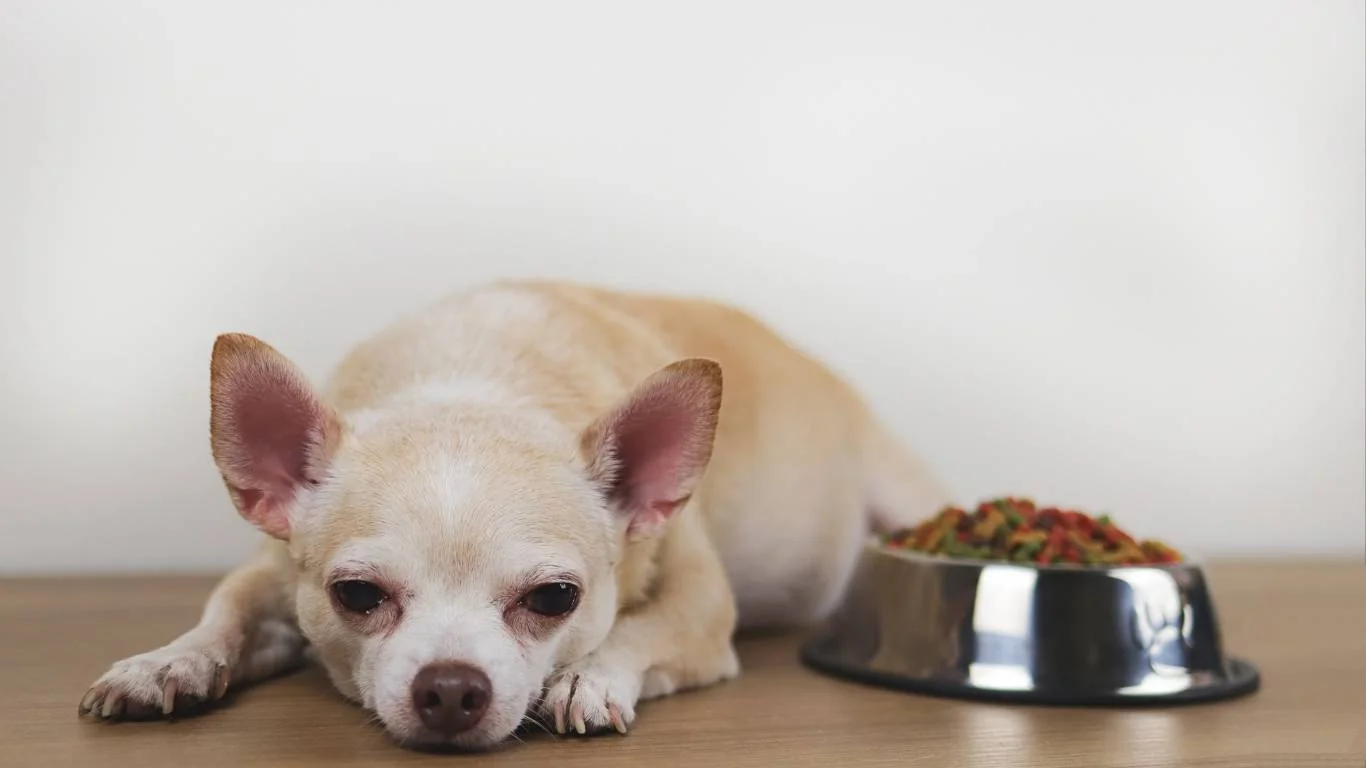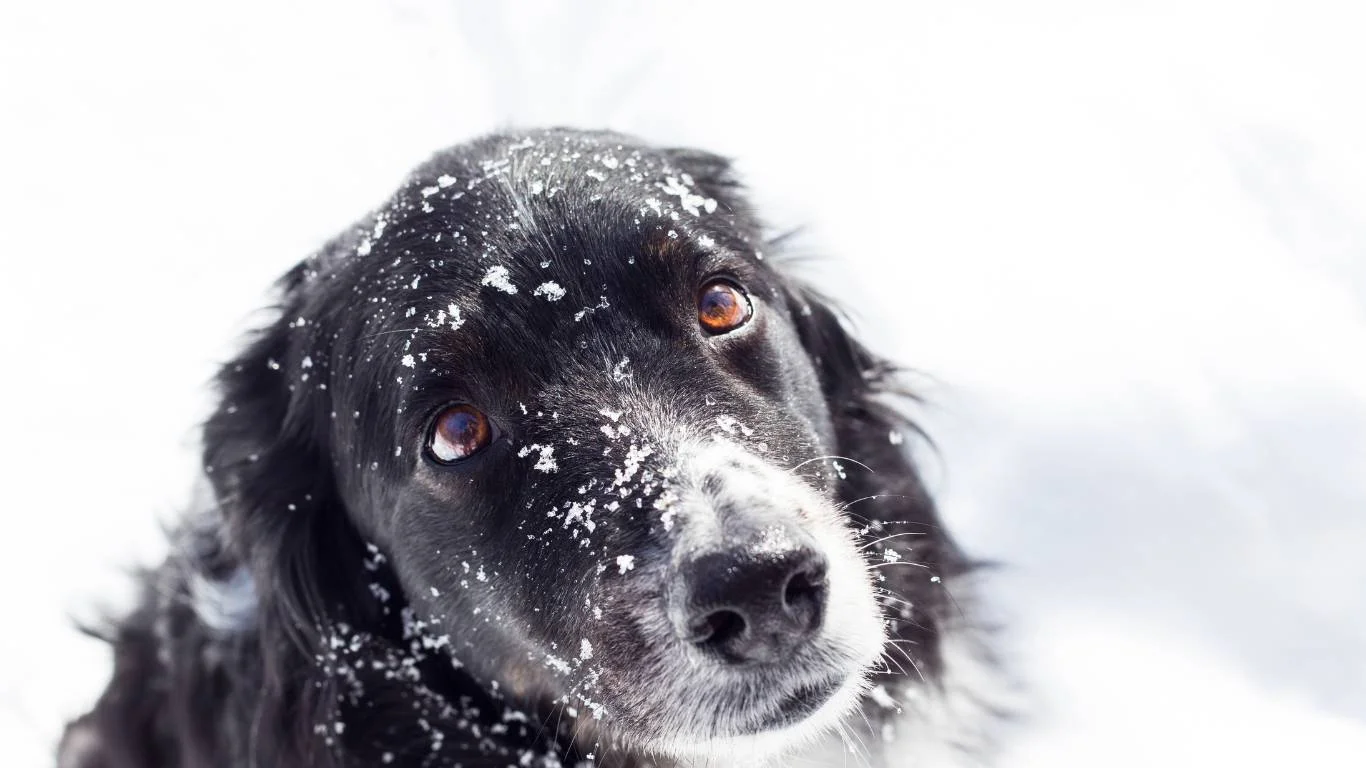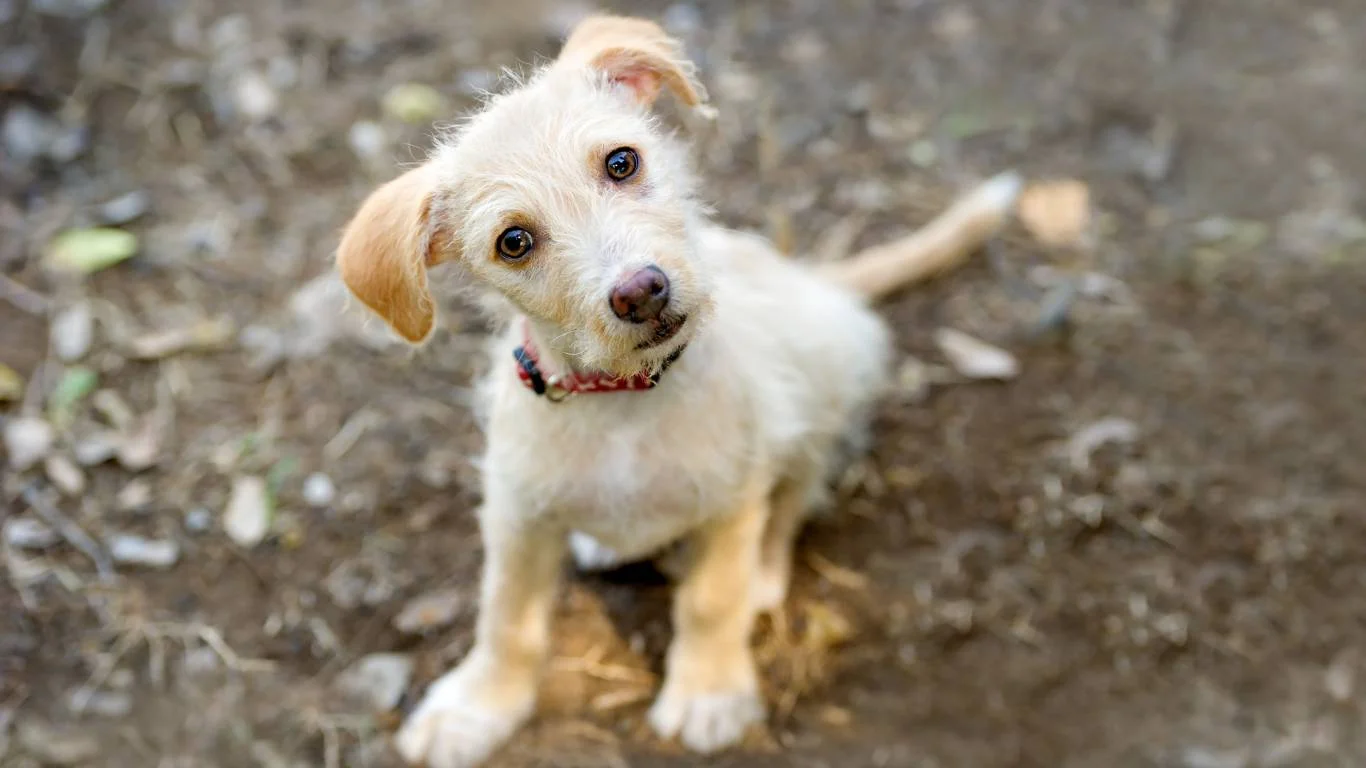10 Best Foods to Improve Your Dog’s Coat and Skin Health Naturally
As a pet nutritionist and a seasoned pet care expert, I’ve seen firsthand how essential the right nutrition is for maintaining your dog’s overall health. But one of the most overlooked aspects that every dog parent should focus on is their dog’s coat and skin health. After all, a shiny, healthy coat is often a sign of a dog that is thriving, both physically and mentally. So, what’s the best foods to improve your dog’s coat and skin health? In this post, we’re diving into some of the key nutrients and food choices that can work wonders for your furry friend’s skin and coat, backed by my own experience in working with pets at veterinary clinics.
Why Your Dog’s Coat and Skin Matter

Before we jump into the specifics of the foods, let’s take a moment to understand why a healthy coat and skin are so important. Your dog’s coat isn’t just there to look good – it plays a vital role in protecting them from environmental factors, such as UV rays, dirt, and moisture. It also helps in temperature regulation, ensuring your dog stays comfortable in both hot and cold conditions. And when their skin is healthy, it serves as a barrier to potential allergens and infections.
As someone who works in a veterinary clinic, I’ve often seen pet owners come in with complaints about their dog’s itchy, dry skin or dull, brittle coat. While there are plenty of topical treatments available, the real key to improving skin and coat health starts from the inside out – with their diet. So, let’s explore some of the best foods to improve your dog’s coat and skin health and the vital nutrients that make all the difference.
Essential Nutrients for Healthy Skin and Coat
When it comes to your dog’s coat and skin, certain nutrients are absolute game-changers. These essential nutrients help support skin function, promote hair growth, and ensure that your dog’s coat remains soft, shiny, and healthy.
1. Omega-3 and Omega-6 Fatty Acids

When talking about the best foods to improve your dog’s coat and skin health, omega-3 and omega-6 fatty acids should be at the top of the list. These healthy fats are like a miracle for your dog’s skin. They help reduce inflammation, soothe dry, irritated skin, and enhance the shine and softness of their coat. They also work to fight off skin conditions like dandruff or flaky skin, which can often be a result of poor diet.
In my experience, I’ve seen amazing improvements in dogs suffering from dry, itchy skin when their diet is supplemented with omega-3 fatty acids. These fatty acids are found in fish like salmon, sardines, and mackerel. You can also find them in flaxseeds and chia seeds for plant-based options. As a bonus, omega-6 fatty acids, found in sources like chicken, sunflower oil, and safflower oil, work in tandem with omega-3s to maintain a healthy balance and promote hydration in the skin.
2. Biotin (Vitamin H)
Biotin, often referred to as Vitamin H, is another crucial nutrient for your dog’s skin and coat health. It plays a significant role in maintaining the integrity of their skin and helps promote the growth of healthy fur. Biotin helps to improve the elasticity and strength of your dog’s skin, which is particularly important if they have sensitive or thin skin.
Many commercial dog foods already contain biotin, but you can also find it in foods like eggs (cooked), liver, and sweet potatoes. In my practice, I’ve seen dogs with thinning coats or brittle hair showing significant improvement in fur strength and growth when their diet includes biotin-rich foods.
3. Vitamin E for Skin Protection

Vitamin E is another powerhouse for keeping your dog’s skin in tip-top condition. Known for its antioxidant properties, vitamin E helps protect the skin from oxidative stress, which can lead to premature aging or skin damage. It also supports skin healing and regeneration, which is essential for dogs suffering from skin conditions or those with sensitive, reactive skin.
In my years of working as a pet care expert, I’ve recommended adding vitamin E-rich foods like spinach, pumpkin, and sunflower seeds to a dog’s diet. These foods are not only great for skin health but also improve coat texture and promote a shiny, glossy look. If your dog has been struggling with skin irritation or conditions like eczema, vitamin E could be a vital addition to their diet.
Best Foods to Feed Your Dog for Healthy Skin and Coat
Now that we’ve covered the essential nutrients, let’s talk about some of the best food options you can give your dog to improve their skin and coat health. Whether you’re feeding them kibble, raw food, or homemade meals, you can easily incorporate these foods into their diet to support their overall well-being.
1. Salmon and Fish Oil
Salmon is an excellent source of omega-3 fatty acids, and it’s one of my personal favorites to recommend to pet owners. Fish oil, whether you add it directly to your dog’s food or serve it as a treat, can provide a significant boost to their skin and coat health. The omega-3s in salmon and fish oil help reduce inflammation, hydrate the skin, and promote a silky coat. Dogs love the taste, and it’s easy to incorporate into their meals.
2. Sweet Potatoes
Sweet potatoes are not only delicious but also packed with beta-carotene, which converts to vitamin A in the body. Vitamin A is essential for maintaining healthy skin and coat. Plus, sweet potatoes are high in fiber, which supports your dog’s digestive health. Healthy digestion is closely linked to healthy skin, so feeding your dog sweet potatoes can have a double benefit!
More Amazing Foods to Boost Your Dog’s Coat and Skin Health

As we continue exploring the best foods to improve your dog’s coat and skin health, let’s take a look at even more fantastic options that can support your dog’s skin, keeping it moisturized, soft, and glowing. If you’re a pet owner like me, you’re probably always on the lookout for ways to boost your dog’s nutrition and well-being, and adding these ingredients to their diet can be a game-changer.
1. Coconut Oil for Skin Hydration
Coconut oil is a favorite of many dog owners for good reason. Not only can it work wonders on your dog’s skin when applied topically, but it also provides significant benefits when added to their diet. This natural oil is packed with medium-chain triglycerides (MCTs), which are known to help improve skin hydration and fight inflammation. In fact, I’ve had clients rave about how coconut oil has helped soothe their dog’s irritated skin and give their coat a shiny finish.
By incorporating coconut oil into your dog’s food, you’ll notice that their coat becomes softer and their skin stays moisturized. You can also use it as a treat or mix it with their regular meals. Start with small amounts, especially if your dog’s digestive system is sensitive, and gradually increase the serving. Just be mindful of portion sizes, as coconut oil is high in calories.
2. Carrots for Skin Health and Shine
When it comes to promoting a healthy coat, carrots are a fantastic, affordable option. These crunchy veggies are packed with beta-carotene, which supports the regeneration of skin cells. Carrots are also rich in fiber, which is excellent for digestive health. As we discussed earlier, a healthy gut equals healthy skin, so adding carrots to your dog’s diet can give them a dual benefit – better digestion and a glossy coat.
I’ve seen dogs who eat a mix of carrots and other healthy veggies like spinach and kale have smoother, more radiant coats. You can serve them raw, steamed, or even pureed, and I’ve found that most dogs love the crunchiness, making them a perfect snack or a meal topper. So, don’t hesitate to toss a few baby carrots into your dog’s meal for an extra dose of skin-loving goodness!
3. Poultry: Chicken and Turkey

Poultry is another fantastic addition to your dog’s diet, especially when it comes to improving their skin and coat health. Chicken and turkey are lean protein sources that are not only easy to digest but also loaded with amino acids that are essential for healthy hair and skin. Protein is a key building block for your dog’s fur, and including high-quality poultry in their meals can help boost hair growth and strength.
As a pet nutritionist, I’ve seen firsthand how adding lean meats like chicken or turkey can give dogs a healthier, shinier coat. Both are excellent sources of zinc, a mineral that plays an important role in cell growth and repair, including skin cells. If your dog has been struggling with dry, flaky skin, introducing turkey or chicken could help promote better skin health and fur texture.
4. Oats for Soothing Irritated Skin
If your dog struggles with irritated or itchy skin, oats can be a lifesaver. Oats are well-known for their ability to soothe inflammation, and they’re gentle on sensitive skin. They’re also rich in beta-glucans, which help repair the skin’s barrier function and keep moisture locked in. Oats can be served as part of your dog’s regular meal or used as a supplement in the form of oatmeal, and I’ve personally witnessed how it helps calm even the most irritated skin.
I usually recommend plain, cooked oatmeal or oat flour as an ingredient in dog food, as it’s a highly digestible source of carbohydrates and fiber. Oats also contain essential fatty acids that promote skin health and keep your dog’s coat soft and shiny. Plus, they can help relieve some of the discomfort caused by common skin conditions, like allergies or eczema.
Supplements to Consider for Skin and Coat Health

While food plays a massive role in supporting your dog’s coat and skin health, there are also supplements you can consider adding to their diet to help them shine. As a pet care expert, I’ve worked with many clients who have used supplements to boost their dog’s health. Let’s go over a few that can provide extra support for your dog’s skin and coat.
1. Fish Oil Supplements
If your dog’s diet doesn’t include enough omega-3 fatty acids, fish oil supplements can be a great addition. Omega-3s from fish oil help reduce inflammation, support skin health, and promote a healthy, shiny coat. They can also help alleviate symptoms of dry skin, hot spots, or other skin conditions. I personally recommend fish oil for dogs with chronic skin issues, and I’ve seen wonderful results in dogs with dry, flaky coats when they start taking a daily supplement.
When choosing a fish oil supplement for your dog, look for one that contains high levels of EPA and DHA (the beneficial omega-3 fatty acids). Just be sure to follow the recommended dosage based on your dog’s size and weight, as too much fish oil can lead to digestive upset.
2. Zinc Supplements
Zinc is an essential mineral that plays a critical role in skin health. It helps with cell regeneration and promotes a strong immune system. I’ve recommended zinc supplements to many clients whose dogs were suffering from hair loss, slow-healing wounds, or dry, flaky skin. Zinc is often found in commercial dog food, but if your dog has specific dietary needs or skin issues, a supplement can give them the boost they need.
However, be careful with the dosage, as too much zinc can be toxic. Always consult your veterinarian before adding any supplements to your dog’s routine to ensure they’re getting the proper amount.
Case Studies & Real-Life Examples

To really drive home how effective the right diet can be for your dog’s skin and coat, let me share a few real-life examples from my experience as a pet nutritionist and pet care expert in veterinary clinics. These are just a few stories of how the best foods to improve your dog’s coat and skin health can work wonders when it comes to promoting a healthy, shiny coat and preventing common skin issues.
Case 1: Daisy, the Itchy Golden Retriever
Daisy, a sweet Golden Retriever, came to us at the clinic with a persistent itch and dry, flaky skin. Her coat looked dull and lacked the usual golden shine that Goldens are known for. After a full examination and some diet adjustments, we focused on incorporating more omega-3 rich foods like salmon and sardines into her diet. I also recommended a supplement of fish oil to give her that extra boost of essential fatty acids.
Within a few weeks, Daisy’s owners noticed a huge difference. Her coat became soft, shiny, and her skin stopped flaking. The itching had decreased significantly, and she was back to her playful, happy self. It was a perfect example of how diet changes can directly impact a dog’s skin and coat health. Omega-3s were the key players in Daisy’s transformation, and her owners were so happy with the results.
Case 2: Max, the Dull-Coated Poodle
Max, a poodle with a notoriously dull coat, came to the clinic after his owners expressed concerns about his shedding and lack of sheen. After reviewing his diet, I realized that Max was not getting enough of the right fats or vitamins to promote healthy hair growth. I introduced biotin-rich foods like eggs and sweet potatoes into his meals, and I suggested adding a fish oil supplement for the omega-3 benefits.
Just a few weeks later, Max’s coat began to transform. His once-dull fur started shining, and shedding decreased. His skin was more hydrated, and he wasn’t scratching nearly as much. His owners were thrilled with the results and couldn’t believe how much of an improvement a simple diet change made. This is another example of how proper nutrition can work wonders for dogs with skin and coat issues.
Case 3: Bella, the Dog with Allergies
Bella, a mixed-breed dog with sensitive skin and allergies, was constantly battling dry patches and red, irritated skin. Her owners tried various topical treatments, but nothing seemed to help long-term. After discussing her diet in detail, I recommended adding oats, coconut oil, and zinc-rich foods like liver to her meals to help soothe her skin from the inside out.
Within a month, Bella’s skin had noticeably improved. The dry patches healed up, and her coat became much softer and shinier. The addition of anti-inflammatory ingredients like oats and coconut oil, along with the zinc-rich liver, worked together to help Bella’s body combat the allergens that were causing her discomfort. Her owners were relieved that they could finally address Bella’s skin issues with food, rather than relying on constant treatments.
Key Takeaways: What You Need to Remember
Now that we’ve explored the best foods to improve your dog’s coat and skin health, here are the key takeaways to keep in mind:
- Omega-3 fatty acids are essential for reducing inflammation and keeping your dog’s skin hydrated and healthy. Sources like fish, flaxseeds, and fish oil supplements are great choices.
- Biotin and vitamin A (found in eggs, sweet potatoes, and liver) support healthy fur and skin regeneration, ensuring a glossy, strong coat.
- Vitamin E acts as an antioxidant that protects your dog’s skin from oxidative stress and promotes healing. Look for vitamin E in foods like spinach, sunflower seeds, and pumpkin.
- Coconut oil is excellent for moisturizing and soothing irritated skin, while also improving coat shine when added to your dog’s meals.
- Proteins like chicken, turkey, and fish provide the amino acids necessary for strong, healthy hair and skin.
By incorporating these nutrient-rich foods into your dog’s diet, you’re giving them the best chance at a shiny, healthy coat and skin. And remember, results don’t happen overnight, but with consistency, you’ll start seeing noticeable improvements in just a few weeks. Always keep in mind that a healthy diet is just one part of the puzzle – proper grooming, regular vet check-ups, and minimizing allergens will also help keep your dog’s coat looking its best!
FAQs
What are the best oils to use for improving my dog’s coat?
The best oils for your dog’s coat are typically those rich in omega-3 fatty acids, like fish oil and flaxseed oil. These oils help hydrate the skin, reduce inflammation, and promote a shiny, healthy coat. Coconut oil is another great option that helps moisturize and soothe irritated skin.
Can biotin supplements improve my dog’s coat?
Yes! Biotin is great for promoting hair growth and improving coat texture. If your dog is lacking in biotin, consider adding biotin-rich foods like eggs and liver to their diet, or ask your veterinarian about biotin supplements.
How can I tell if my dog’s coat and skin are healthy?
A healthy coat should be shiny, soft, and free of bald patches or dry, flaky skin. If your dog is scratching frequently, shedding excessively, or showing signs of irritation, it could be a sign that something is off with their skin or diet. Consult your veterinarian for a proper diagnosis.
Bonus: Additional Resources or DIY Tips
If you’re looking for more ways to support your dog’s skin and coat health, consider these DIY tips:
- Homemade dog food: You can create meals that include skin-boosting ingredients like carrots, sweet potatoes, and fish. Just be sure to consult with a pet nutritionist or vet to ensure the diet is well-balanced.
- DIY Oatmeal Bath: For dogs with irritated skin, a soothing oatmeal bath can help relieve itching. Simply grind up oatmeal and add it to lukewarm bath water.
Appendix: Table, References, Disclaimer, and Call to Action
References: For more information on skin and coat health, check out reputable pet nutrition websites and resources like PawPatron.
Disclaimer: The information provided in this article is intended for educational purposes and should not replace professional veterinary advice. Always consult your veterinarian before making changes to your dog’s diet or health routine.
Call to Action: If you’re ready to give your dog the shiny, healthy coat they deserve, start incorporating these amazing foods into their diet today! And remember, if you need personalized advice or help creating the best nutrition plan for your dog, feel free to reach out to a qualified pet nutritionist.






